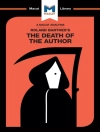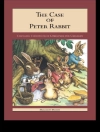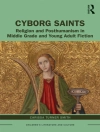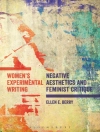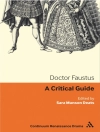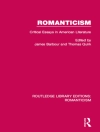Bookshelves in the Age of the COVID-19 Pandemic provides the first detailed scholarly investigation of the cultural phenomenon of bookshelves (and the social practices around them) since the start of the pandemic in March 2020. With a foreword by Lydia Pyne, author of
Bookshelf (2016), the volume brings together 17 scholars from 6 countries (Australia, Canada, Germany, the Netherlands, the UK, and the USA) with expertise in literary studies, book history, publishing, visual arts, and pedagogy to critically examine the role of bookshelves during the current pandemic. This volume interrogates the complex relationship between the physical book and its digital manifestation via online platforms, a relationship brought to widespread public and scholarly attention by the global shift to working from home and the rise of online pedagogy. It also goes beyond the (digital) bookshelf to consider bookselling, book accessibility, and pandemic reading habits.
İçerik tablosu
Foreword, Lydia Pyne.- Introduction, Corinna Norrick-Rühl and Shafquat Towheed.-
Section 1: Private and public reading spaces.- Chapter 1: ‘An examination of Bookshelves in the Age of the COVID-19 Pandemic as a liminal space’, Shafquat Towheed (The Open University, UK).- Chapter 2: ‘Crisis Book Browsing: Restructuring the Retail Shelf Life of Books’, Kenna Mac Tavish (University of Melbourne, Australia).- Chapter 3: ‘Your Bookshelf is Problematic’: Progressive and Problematic Publishing in the Age of COVID-19′ Chiara Bullen (University of Stirling, Scotland).- Chapter 4: ‘Old Books on New Media: Reader Responses to
The Thorn Birds and
Late Night with Seth Meyers’ Jennifer Burek Pierce (Universit of Iowa, USA).-
Section 2: Material culture on screen.- Chapter 5: ‘Zoom as a Digital Medium: Bookshelves in Backgrounds throughout History’ Paizha Stoothoff (California State University, Los Angeles, USA).- Chapter 6: ‘You Can Look but You Can’t Touch: Representations of the Materiality of the Printed Book on Screen’, Amanda Lastoria (Simon Fraser University, Canada).- Chapter 7: ‘Bookish Objects on the Bookshelf’, Emily Baulch (University of Queensland, Australia).- Chapter 8: ‘Writing with Spines: Bookshelf Art, Found Poetry, and the Practice of Assemblage’ Claire Battershill (University of Toronto, Canada).-
Section 3: Libraries, pedadogy and reading during the pandemic.-Chapter 9: ‘Books, reading and #parentinginapandemic’ Corinna Norrick-Rühl (University of Münster, Germany).- Chapter 10: ‘A Bookshelf of the World. Bringing Students’ Books inside the Classroom: a Means for Epistemic Democracy?’, Nelleke Moser (Vrije Universiteit, Netherlands).- Chapter 11: ‘Online Learning, Library Access and Bookcase Insecurity: A German Case Study’ Chandni Ananth, Ellen Barth, Laura Ntoumanis and Natalia Tolpstopyat (University of Münster, Germany).- Chapter 12: ‘ “Ummmmm, guys? Don’t microwave your books”: Readers, Authors, and Institutions in #Pandemic Reading Tweets’ Leah Henrickson (University of Leeds, UK).
Yazar hakkında
Corinna Norrick-Rühl is Professor of Book Studies at the University of Muenster (WWU), Germany. Her recent publications are The Novel as Network: Forms, Ideas, Commodities (2020, co-edited with Tim Lanzendörfer, in this series) and Book Clubs and Book Commerce (2019).
Shafquat Towheed is Senior Lecturer in English in the Faculty of Arts and Social Sciences (FASS) at The Open University, UK. He directs The Open University’s History of Books and Reading (HOBAR) research collaboration and was UK principal investigator for the Reading Europe Advanced Data Investigation Tool (READ-IT) project (2018–2021).


